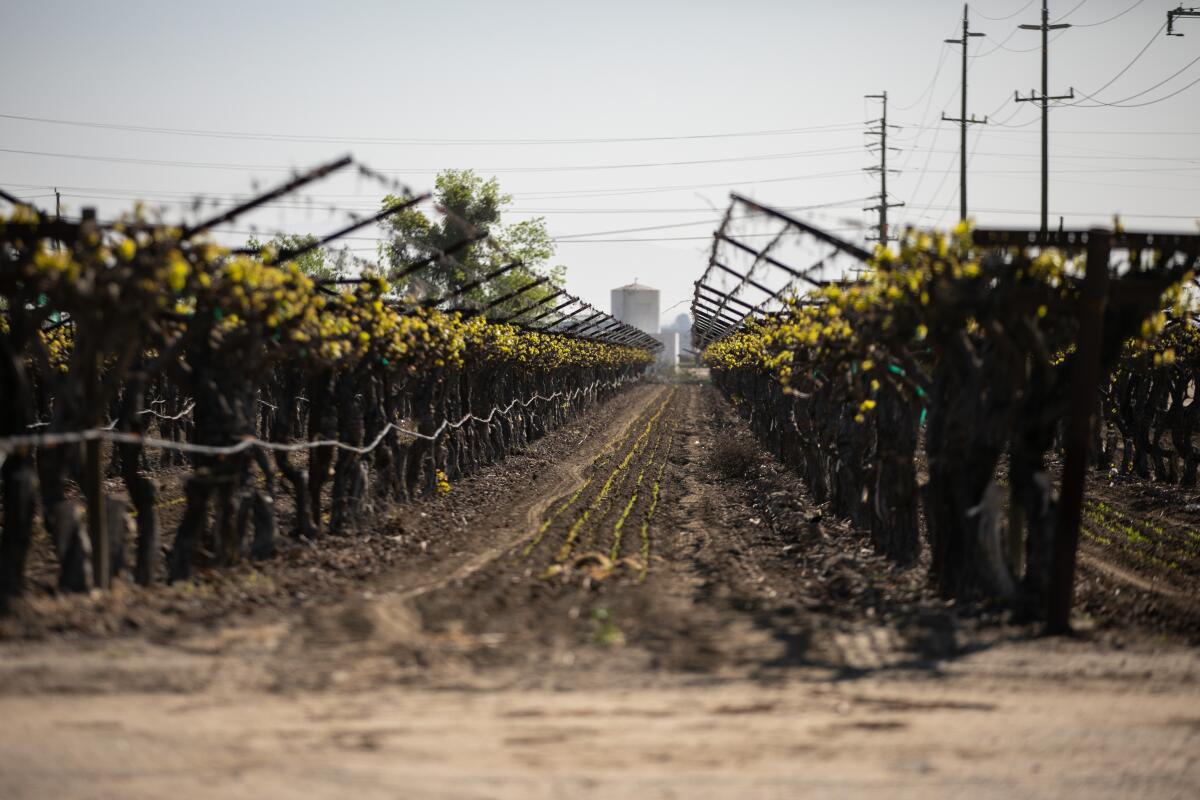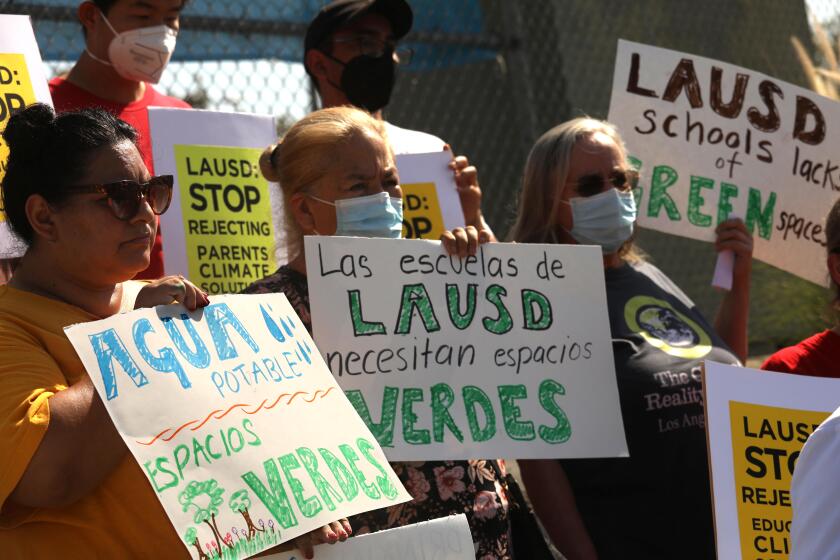Letters to the Editor: The massive regulatory failure that lets big ag burn dried-up vineyards

- Share via
To the editor: As usual, any meaningful movement to solve the Central Valley’s long-standing air quality problems is held hostage to major economic interests. (“Air quality worsens as drought forces California growers to burn abandoned crops,” June 11)
Legislation to phase out agricultural burning is continually sidestepped by the San Joaquin Valley Air Pollution Control District (APCD), which has asked for compliance postponements several times since Senate Bill 705 was signed into law in 2003. Since the APCD’s board is made up almost entirely of Central Valley politicians, many with direct interests in big agriculture, it’s no wonder that air quality goals are not being met.
Grape growers whine that mechanically reducing and recycling their crop waste is uneconomical, then emit more carbon dioxide and particulate pollution to already fouled Central Valley by burning crops that could have been diverted into mulch and soil conditioning materials. Meanwhile, the folks who work for them and live in the Valley are being sickened
Let’s add the health costs associated with these rampant conflagrations when we reckon the price of continuing to do nothing.
Stuart Sheldon, Murrieta
..
To the editor: Jeff Bitter of Allied Grape Growers says people have burned vineyards “because it’s just the most practical way to deal with the agricultural waste — the most economic way.”
How about the economic impact of the health costs of your pollution?
Stop burning and raise your prices to pay for better practices. If your product doesn’t sell, then we will have chosen to eliminate it. If it does, then we will all be better off in all ways, including economically.
Stop laying off your costs on everyone else. Every activity must pay for its impacts.
Paul Malykont, Los Osos



